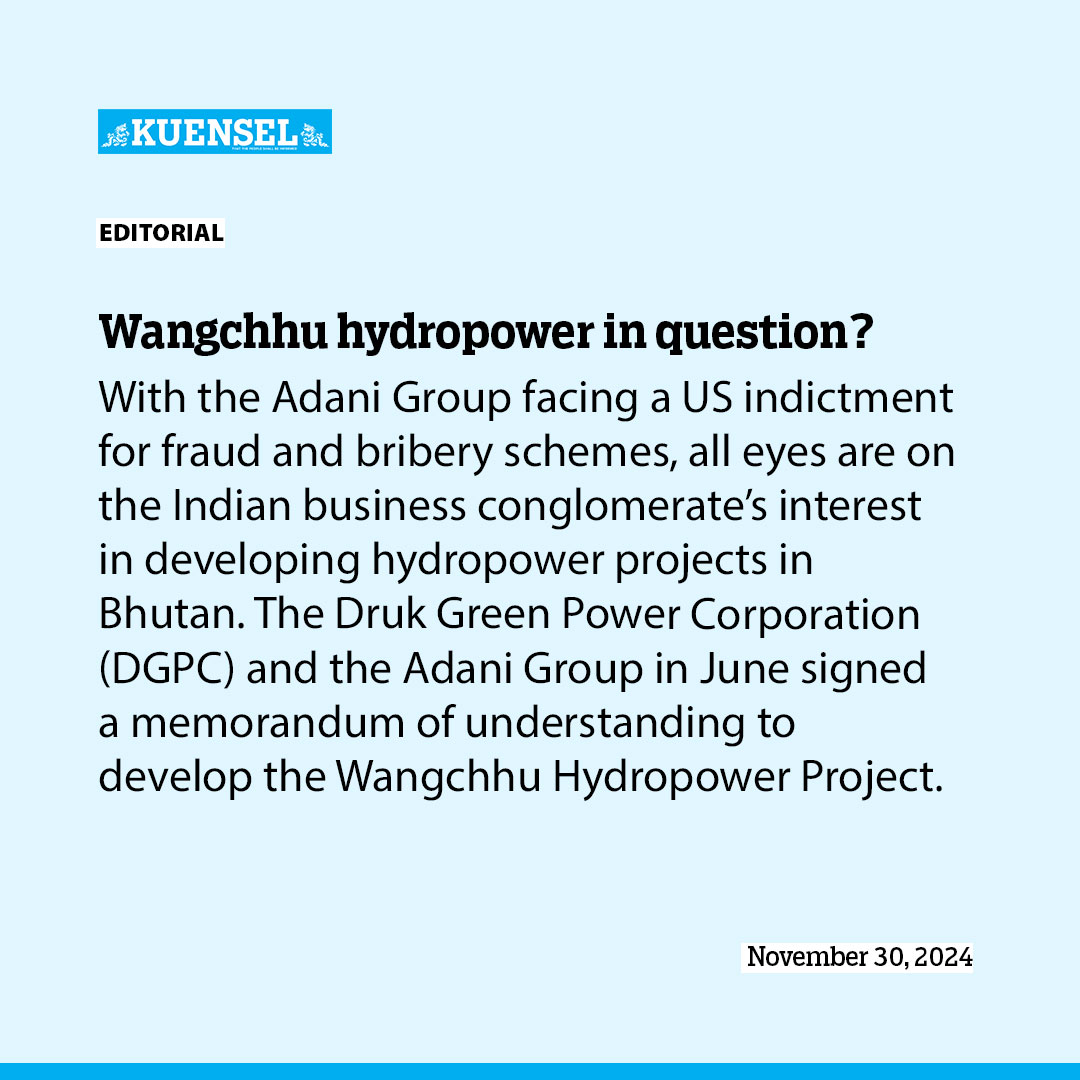With the Adani Group facing a US indictment for fraud and bribery schemes, all eyes are on the Indian business conglomerate’s interest in developing hydropower projects in Bhutan. The Druk Green Power Corporation (DGPC) and the Adani Group in June signed a memorandum of understanding to develop the Wangchhu Hydropower Project.
Details of the project are yet to be finalised, but with a legal case pending, questions abound if Bhutan, like other countries, would withdraw or cancel million-dollar projects. This follows recent cancellation of airport construction in Kenya and others pulling out investments in the Group.
However, it is wiser not to jump to conclusions. DGPC officials say that it is too early to comment if the corruption charges would impact ongoing negotiations. The negotiations are on the two potential options considered for the Wangchhu project: a 570 MW run-of-the-river scheme or a 900 MW reservoir-based scheme. While many around the world are watching the repercussions of the legal charges, shares of all the 11 listed Adani Group firms rallied as of yesterday morning.
What is notable is the Adani Green Energy surging nearly 15 percent. Adani Group has denied all allegations as baseless and said it would seek legal recourse to defend itself.
Meanwhile, while some are becoming skeptical, there are other international partners who have also expressed their continued support. The Sri Lanka Ports Authority, for instance, has expressed its ongoing confidence in its partnership with Adani, the Tanzanian government has reaffirmed its commitment to its agreements with Adani Ports, citing that ongoing projects and contracts fully comply with the country’s law.
In our case, we have not even finalised the agreement on how to go about with the Wangchhhu project. Those involved in the negotiations and keeping an eye on the recent developments are confident that as long as the agreement is mutually beneficial, there should not be reasons to worry.
The confidence in investors including sovereign funds comes from the fact that the chairman of the Group, Gautam Adani and his aides were not charged under the US Foreign Corrupt Practices Act but faced three other charges, including securities and wire fraud that are punishable with monetary fines.
In our case, if time is the essence, we have the time to decide what is best for our projects. What we could learn from the uncertainties in the investment market, as we plan major projects in the 13th plan and beyond, is making the right choice.
Besides, there are talks that the conditions set by investors are complicating the project. It is reported that the Adani Group wants nothing less than a 70 percent majority stake in the project and a concession period of 90 years plus, which has complicated negotiations.
Having learnt lessons from the nature and arrangement of developing hydropower projects in the country, our policy makers are wiser and will ensure that hydropower projects should benefit Bhutan and its people as much as the investors.


